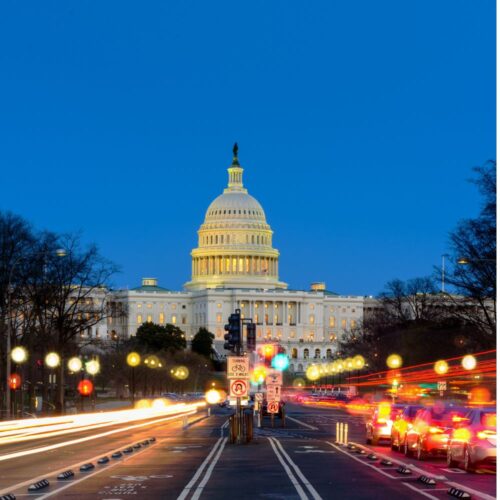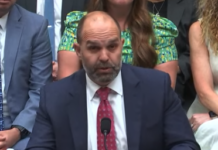
By Adam R Jacobson
Twin 6-3 decisions last week by the U.S. Supreme Court could usher in a new era at the FCC when it comes to how it interprets a Congressional law that may have a double meaning in cases when a Commission decision is deemed arbitrary and capricious.
Interestingly, the second, major 6-3 ruling involves maritime fisheries. The first significant 6-3 ruling involves individuals accused of fraud by the Securities and Exchange Commission.
How could radio station owners be impacted by these two cases?
As first reported by Streamline Publishing’s Radio + Television Business Report, a case named Loper Bright Enterprises et. al. v. Raimondo, which incorporated oral arguments made in January in Relentless Inc. v. Department of Commerce, saw Chief Justice John Roberts and five ideologically conservative members of the Supreme Court — Justices Alito, Thomas, Gorsuch, Kavanaugh and Barrett — rule, “The Administrative Procedure Act requires courts to exercise their independent judgment in deciding whether an agency has acted within its statutory authority, and courts may not defer to an agency interpretation of the law simply because a statute is ambiguous; Chevron is overruled.”
What does a popular gasoline brand have to do with this? The ability to enforce regulatory policies as law stems from the landmark 1984 case Chevron v. NRDC. In a January 2024 interview with Wilkinson Barker Knauer LLP Partner David Oxenford, the esteemed communications lawyer explained “Chevron deference” as a practice stemming from this 40-year-old Supreme Court ruling in which the Courts will defer to the decision of an administrative agency such as the FCC when interpreting an ambiguous Congressional statute unless the agency’s decision is arbitrary and capricious or contrary to law.
With Friday’s release of its decision in Loper Bright, this practice has all been erased.
For radio broadcasters seeking regulatory relief through court action, the Supreme Court decision could be highly welcoming. Why? The judicial branch will now be empowered to rule based on their own interpretation of the law, ending the four-decade understanding that the agency “experts in the field” within the executive branch of the federal government are better than a judge within the judicial branch to determine the outcome of a legal challenge. Separation of powers within the federal government are also at play, as the Supreme Court’s conservative majority believes the executive branch — a.k.a. the White House — had too much sway.
Considering the Biden Administration’s hand-picked leadership at the Federal Trade Commission and the 3-2 Democratic majority at the FCC and how each agency has acted in 2024, many Republicans have condemned the leadership as Marionettes of the Biden White House.
The contrary view, expressed by Justice Elena Kagan, vehemently disagreed with the majority. She wrote, “It is now ‘the courts (rather than the agency)’ that will wield power when Congress has left an area of interpretive discretion. A rule of judicial humility gives way to a rule of judicial hubris … A longstanding precedent at the crux of administrative governance thus falls victim to a bald assertion of judicial authority. The majority disdains restraint, and grasps for power.”
What’s the ultimate outcome for Radio? In the plainest terms, Oxenford believes the decision empowers those challenging agency rulings more ammunition to challenge an agency decision. “They can argue that the agency did not make the right decision, and not be limited (as a challenger is now) to simply arguing that the agency decision that was unreasonable as it was contrary to the statute or lacking a basis in the administrative record. It would not stop agency actions, it would just subject them to more scrutiny.”
END OF THE ‘ALJ’?
The first big Supreme Court ruling of this term impacting Radio quietly surfaced on Thursday (6/27). That case is FCC vs. Jarkesy, and it saw the Supreme Court determine that individuals accused of fraud by the Securities and Exchange Commission are entitled to a trial by jury.
The ruling effectively dilutes the power of an agency’s Administrative Law Judge. For the FCC under Jessica Rosenworcel, this could be highly significant. That said, the Commission under Ajit Pai used a hearing designation order and a review by the Administrative Law Judge to place Sinclair Broadcast Group’s planned acquisition of then-WGN Radio owner Tribune Broadcasting in the hands of an ALJ. The deal ultimately disintegrated. Should a similar scenario emerge in the coming years, could the acquisitor challenge the FCC in court should it deem a Hearing Designation Order necessary?
That’s exactly what the FCC vs. Jarkesy ruling could present, and former FCC Commissioner Mike O’Rielly was pleased with the decision. “[It is] just a matter of time before [the] FCC’s broken ALJ process is similarly and rightfully struck down,” he posted to X [formerly Twitter]. “It’s process abuse of the highest order. I’ll admit it’s different than [the] SEC’s use but no less problematic.”
What’s to come for the FCC is uncertain. But, it could upend future enforcement actions while turbo-charging communications attorneys, hired to take on newly emboldened broadcasters seeking to go to court to fight for regulatory relief.









It’s SEC v. Jarkesy (not FCC v. Jarkesy).
The ruling in the fishermen’s case (where the Court struck down the requirement that the fishermen must pay for the fisheries inspector on their boats) may have some impact on the regulatory “fee” (tax) we all pay.